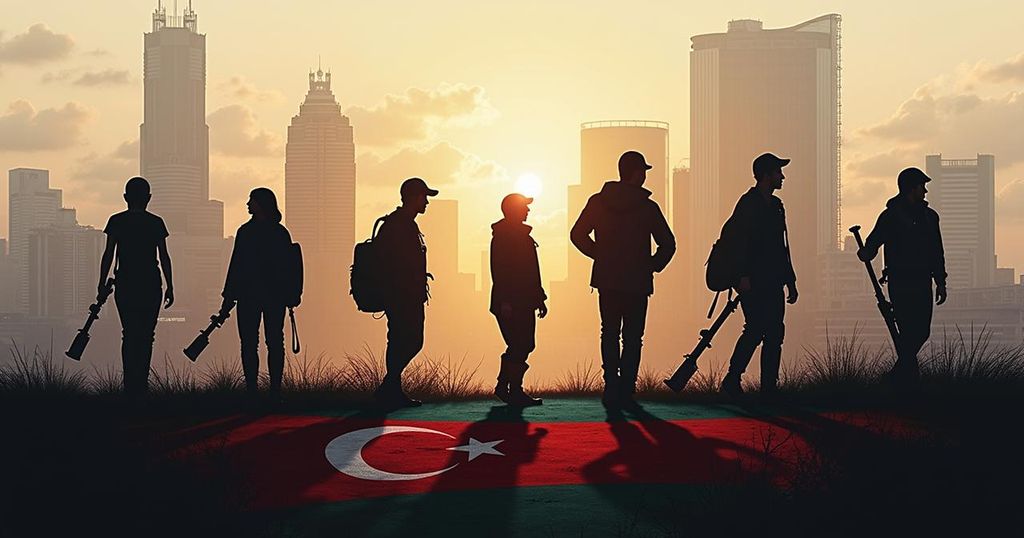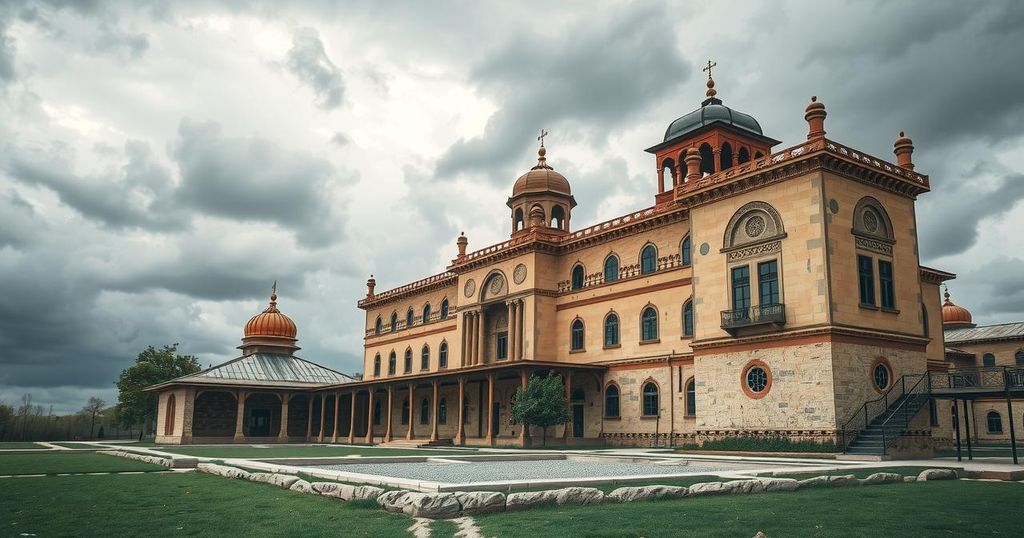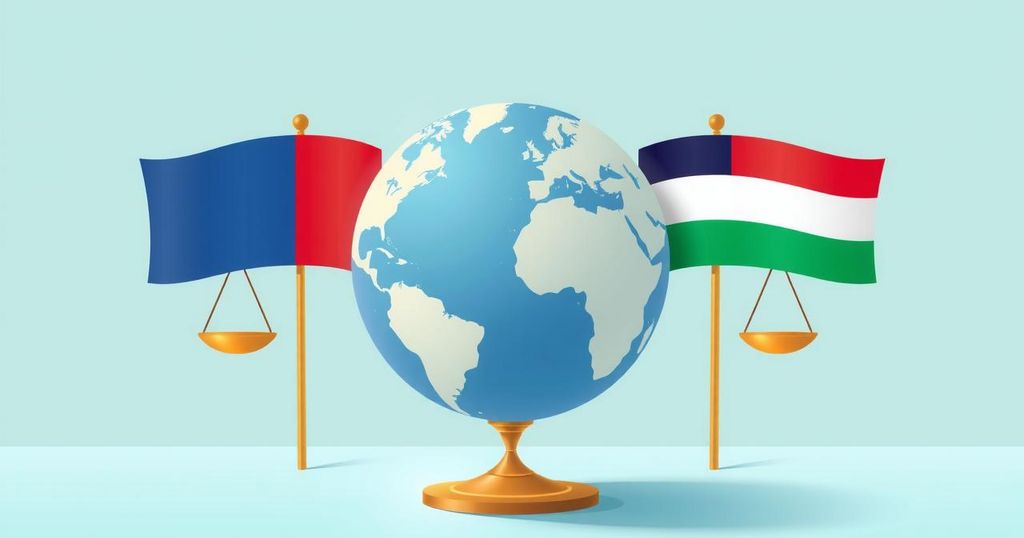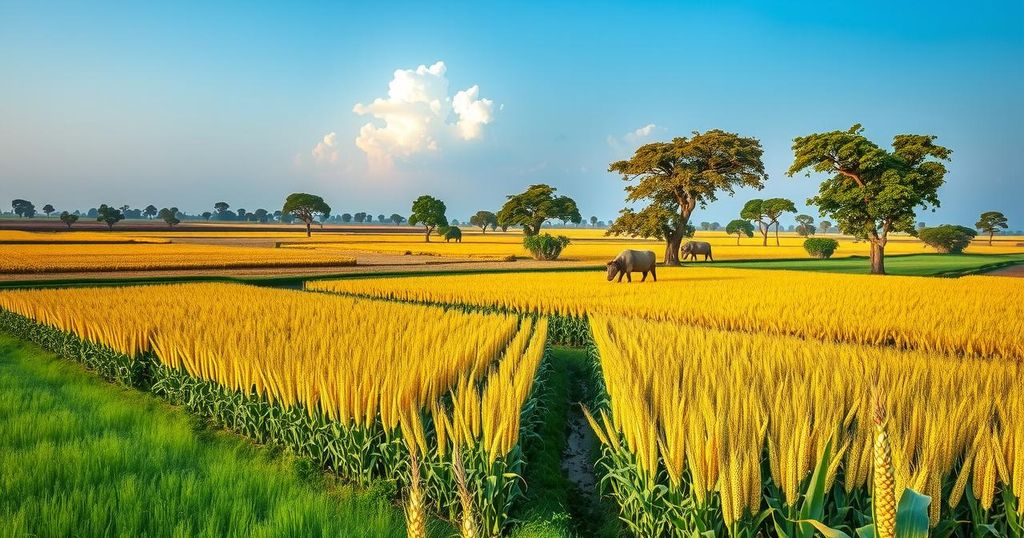Azerbaijan’s Human Rights Record Under Scrutiny Before UN Climate Talks
Ahead of the UN climate talks in November, Azerbaijan faces mounting criticism over its human-rights record, with activists and U.S. lawmakers calling for accountability regarding alleged abuses against civil society and ethnic Armenians. Reports indicate a crackdown on dissent, including the arrest of human rights advocates, sparking concerns that such actions could silence crucial voices in climate negotiations. Azerbaijan’s government disputes these claims, asserting that the actions taken are lawful and part of a wider disinformation effort.
Azerbaijan’s commitment to human rights is being scrutinized as it prepares to host the upcoming UN climate change conference in November. Human rights advocates and U.S. legislators are urging the Azerbaijani government to address allegations of civil society repression and ethnic Armenian discrimination. A report from Human Rights Watch and Freedom Now characterizes Azerbaijan’s treatment of government critics and activists as an escalating crackdown. This includes the arrest of Anar Mammadli, a prominent advocate for human rights who cofounded an organization focused on climate justice concerns. Recently, numerous U.S. lawmakers have called upon Secretary of State Antony Blinken to advocate for the release of political prisoners in Azerbaijan, stressing the country’s significant human rights violations, which they argue include ethnic cleansing in Nagorno-Karabakh, an area predominantly inhabited by Armenians. Furthermore, a U.S. State Department evaluation has highlighted “significant human rights issues” in Azerbaijan, documenting instances of arbitrary detentions and unlawful killings. With COP29 set to occur in Azerbaijan, lawmakers view this as an opportunity to elevate energy security within the region and assist nations like Armenia in reducing their reliance on Russian natural gas. Critics argue that the ongoing repression diminishes the voices of those most directly impacted by climate change. Myrto Tilianaki of Human Rights Watch remarked, “When civic space is actively shut down, the voices of those most affected by the climate crisis are at risk of being excluded from the negotiations.” In response to the criticisms, Azerbaijan’s embassy in Washington dismissed the accusations, claiming that the human rights report is part of a disinformation campaign intended to undermine the nation’s credibility. The embassy asserts that all legal matters cited by activists are being handled fairly according to the rule of law. The crackdown on activists aligns with legislative measures targeting non-governmental organizations (NGOs) and independent media, leading to politically motivated arrests framed as legal issues such as money smuggling and tax evasion. Further allegations of extremism and other charges also accompany these detentions. Human Rights Watch emphasizes that these allegations appear to serve as a pretext to silence dissent rather than legitimate legal processes. Despite these concerns, Azerbaijan has been selected to host the climate talks in light of political maneuvering that saw bids from EU countries blocked by Russia. The government has publicly stated its intent to balance the production of fossil fuels with environmental responsibilities. Azerbaijani President Ilham Aliyev defended the nation’s resource management, declaring, “I have always said that having oil and gas deposits is not our fault. It’s a gift from God.” One notable case involves economist Gubad Ibadoghlu, who faces serious charges that could lead to a lengthy prison sentence. Ibadoghlu has been vocal about the discrepancies in how the nation’s oil wealth enriches a select few, rather than benefiting the average citizen. His arrest is emblematic of the broader pattern of silencing dissent in Azerbaijan, particularly as the country seeks to assert its role on the international climate stage while grappling with significant human rights concerns.
In recent years, Azerbaijan has faced increasing international scrutiny regarding its human rights practices, particularly in relation to the treatment of its civil society and ethnic minorities. The country has a history of political repression, with the government frequently targeting activists, journalists, and critics of the regime. As Azerbaijan prepares to host the COP29 climate talks, there are heightened concerns that ongoing human rights abuses could undermine meaningful participation from those affected by climate change. The context of these issues is compounded by Azerbaijan’s geopolitical significance as an energy producer in the Caspian region, specifically in the backdrop of fluctuating tensions with Russia and its relations with European nations seeking alternatives to Russian gas.
Azerbaijan’s upcoming role as the host for international climate negotiations stands in stark contrast to its troubling human rights record, as highlighted by recent reports detailing a crackdown on dissenting voices. The call from U.S. lawmakers for a reevaluation of Azerbaijan’s human rights practices underscores the ongoing global concern regarding the intersection of climate policies and civil liberties. As various stakeholders prepare for COP29, it remains critical that the voices of those directly affected by climate issues are not only heard but also influential in shaping the outcomes of these discussions.
Original Source: www.wprl.org




Post Comment